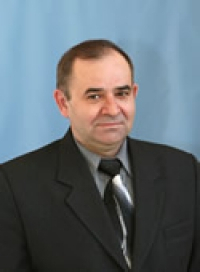Dmitry Pavlovich Rassokha
+7(918) 519-05-72
Associate Professor
Institute of Radioengineering Systems and Control
Senior researcher
Research Institute of Robotics and Process Automation
Research interests:
Theoretical foundations of electrical engineering
Teaching:
-
Theoretical foundations of electrical engineering
Abstract the program of the discipline
"Theoretical bases of electrical engineering"
1. The goals and objectives of the discipline
To provide a theoretical framework for the study of complex electrical engineering disciplines.
2. Requirements to the level of learning of the disciplines
The process of discipline is aimed at formation of the following competences:
- ability to use methods of analysis and modeling of linear and nonlinear electric circuits of direct and alternating current (PK-11);
- ability to continue education at the second level higher professional education, knowledge under one of the specific profiles in the field of research and teaching activities (PC-33);
- willingness to understand the contents of the task object analysis in a technical environment (PC-41).
The level of achievement must be sufficient for a successful study of theoretical provisions of a special electrical disciplines and to perform the necessary design tasks.
As a result of studying discipline the student should:
know: theoretical foundations of electrical engineering: basic concepts and laws of electric circuit theory; methods of analysis of DC and AC currents in the stationary and transient regimes;
to be able to: use the laws and methods in the study of special electrical engineering disciplines;
to own: methods of calculation of the transitive and established processes in linear and nonlinear electrical circuits, problem-solving skills and laboratory experiments on the theory of electrical circuits.
3. The content of the discipline.
The main sections of the Physical foundations of electrical engineering. The theory of electric circuits. Linear constant current circuit. The linear circuit sinusoidal current. Linear circuits with mutually inductive relations. Three-phase circuit. Two-port networks. Filters. Non-sinusoidal currents in linear circuits. Nonlinear DC circuit. Nonlinear DC circuit with controlled sources. Transients in linear circuits. Nonlinear AC circuit. Transients in nonlinear circuits.


